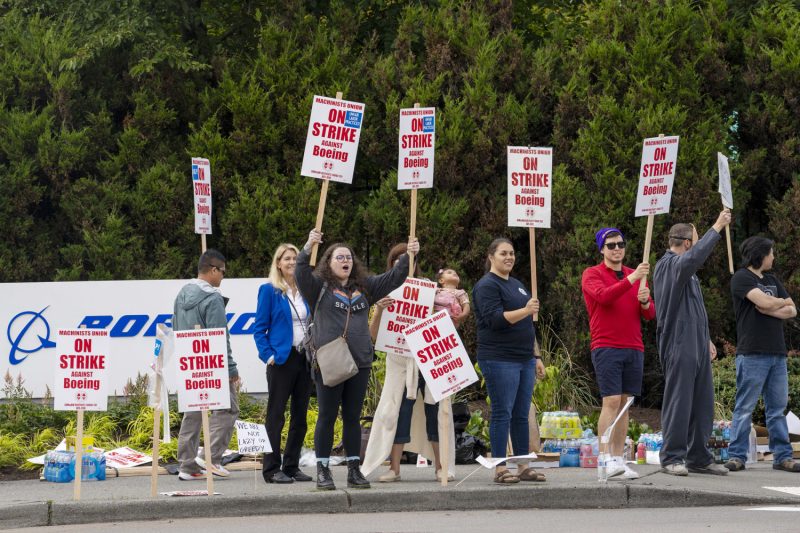Boeing Freezes Hiring in Sweeping Cost Cuts as it Grapples with Factory Worker Strike
The aviation industry is facing turbulence as Boeing, one of the world’s leading aerospace companies, announces sweeping cost-cutting measures, including a freeze on hiring. This decision comes amidst a factory worker strike that has further exacerbated the company’s financial challenges. The move to freeze hiring reflects Boeing’s efforts to manage its expenses and navigate through a period of uncertainty and unrest within its workforce.
Boeing has long been a dominant player in the aerospace sector, known for its innovative aircraft designs and cutting-edge technology. However, recent setbacks, including the grounding of its 737 Max fleet, have taken a toll on the company’s reputation and financial health. The ongoing factory worker strike has only added to Boeing’s woes, disrupting production schedules and putting additional strain on its operations.
By implementing a freeze on hiring, Boeing aims to reduce its operating costs and preserve cash while it grapples with the impact of the factory worker strike. The decision is part of a broader cost-cutting strategy that includes reducing spending across the board and reevaluating its workforce needs. While freezing hiring may help alleviate some of the immediate financial pressures facing the company, it also raises concerns about the long-term implications for Boeing’s ability to innovate and remain competitive in a rapidly evolving industry.
The factory worker strike has underscored the challenges that Boeing faces in maintaining labor relations and managing its workforce effectively. The strike has disrupted production at key manufacturing facilities, leading to delays in deliveries and potentially impacting the company’s bottom line. By freezing hiring, Boeing may be attempting to signal its commitment to cost control and operational efficiency in the face of these challenges.
However, the decision to freeze hiring is not without its risks. Limiting new hires could hinder Boeing’s ability to respond to changing market conditions and innovate in response to customer demands. In a highly competitive industry where technological advancements drive progress, having a skilled and diverse workforce is essential for staying ahead of the curve. By curtailing hiring, Boeing may be sacrificing future growth opportunities in favor of short-term cost savings.
As Boeing grapples with the fallout from the factory worker strike and works to shore up its finances, the decision to freeze hiring is a strategic move aimed at weathering the storm. However, the long-term implications of this decision remain uncertain, as it raises questions about the company’s ability to adapt and thrive in an increasingly challenging environment. Boeing’s ability to strike a balance between managing costs and investing in its workforce will be critical in determining its future success in the aviation industry.



























